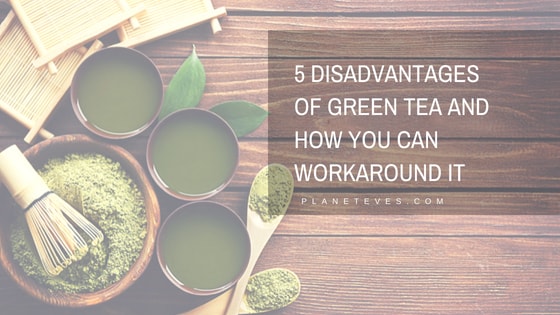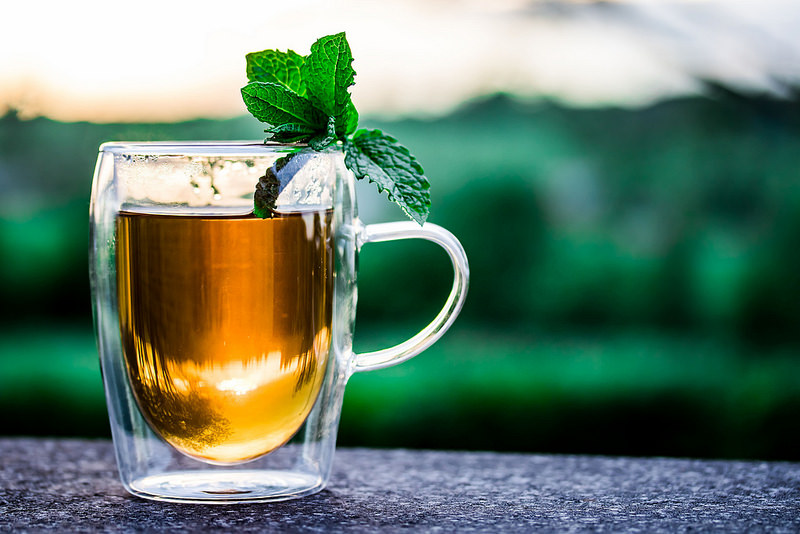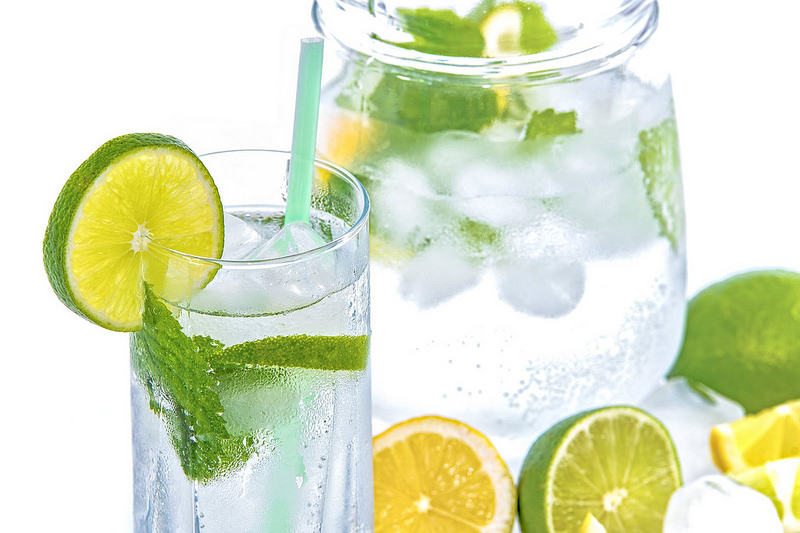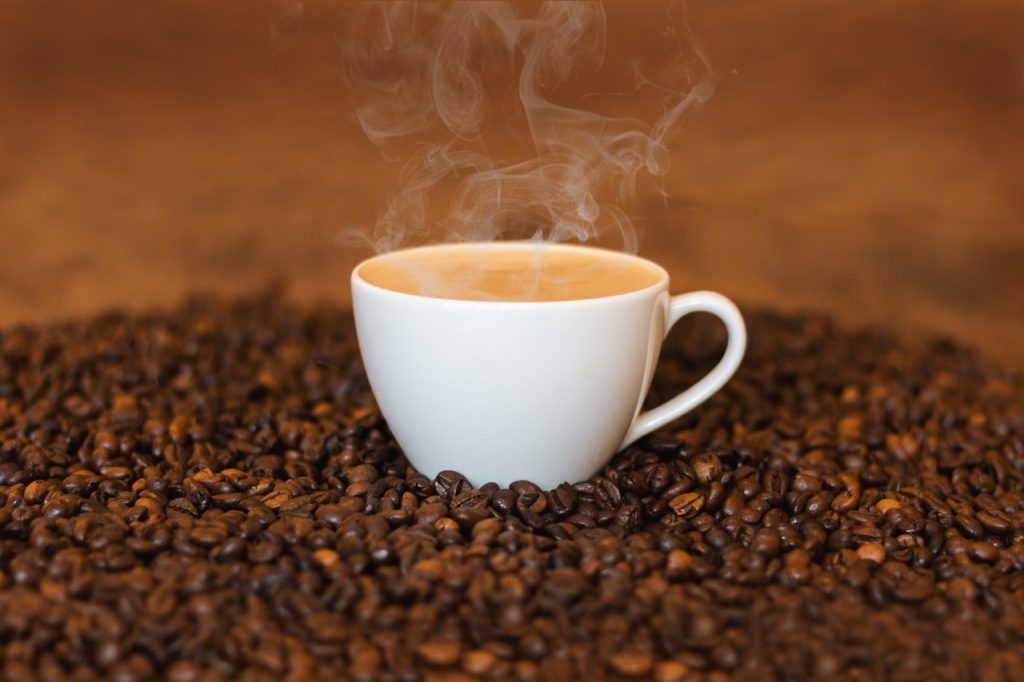Many of us call green tea as an “elixir of health”. Drinking green tea is associated with a variety of health benefits that include enhanced vision, skin purification, better digestion, improved blood circulation, and weight loss. Everything has its merits and demerits and so does green tea which is contraindicated for some health conditions.
Let’s have a look at five major side-effects of drinking green tea and make sure if you are suffering from the similar symptoms then you are required to consult your family physician or health-care provider. Besides you can rule out the disadvantages of green tea with the methods mentioned below.
1. Green Tea Contains Caffeine
Ever searched on Google about the amount of caffeine in green tea? In a fresh tea leaf, caffeine is found at an average level of 3% with minute concentrations of other compounds which are not suitable for every immune system (Graham, 1992). In other words, caffeine intake of more than 500 mg can have a negative effect on your health. You may have to deal with insomnia, nervousness, nausea, headaches and muscle tremors.
How to reduce caffeine in your body?
Flush out excess caffeine from your system with following ways:
- Drink a liter of water in a period of 5-10 minutes. This would rehydrate your body and restore the minerals which were depleted by the caffeine.
- Feed your body with 1-3 servings of fruits rich in vitamin-C. With regular caffeine consumption, your body may have to deal with altered plasma, whole blood, and leukocyte levels.
2. Green tea makes anemia worse
This morning delicacy is enriched with major antioxidants, but you should try to avoid the amalgamation of tea and water. Casein protein found in milk when comes in association with catechin (antioxidants present in green tea) reduces the effectiveness of green tea. The mixture is said to slow down the digestion of calcium and iron.
What are the measures to take if you have anemia?
Some possible measures are given below:
- Avoid adding milk to your green tea
- It is recommended not to drink tea with food as this would result in reduced absorption of iron (Knott, 2017). Then, when to drink green tea?
- Drink your tea at least 2 hours prior or after having any meal
3. Green Tea reduces the Absorption of iron from food
Your morning delicacy may turn into a nightmare as green tea reduces the absorption of iron from food and leads to iron deficiency (Fan, 2016). As far as the 2015 Dutch dietary guidelines are concerned, a person is recommended not to drink more than three cups of tea daily (Fan, 2016).
How to counter reduced iron absorption from green tea
Adding a lemon drink to your daily diet regime will counteract this problem. Lemon contains vitamin C that promotes iron absorption. A pregnant or nursing mother should avoid green tea as tannin can be transferred to your child through the placenta and breastfeeding respectively.
4. Green Tea slows down blood clotting
On an average, people drink 2-3 cups of green tea a day. Anything higher may slow down blood clotting since it contains vitamin-K (Punnose, 2015). High dose of vitamin K increases the length of time a clot takes to form over an injury (Punnose, 2015).
How to counter slow blood clotting process induced by green tea?
In case, you have a history of blood clots then you should discontinue taking any blood-thinning drug such as warfarin if you are also having green tea in your diet routine.
5. Green tea leads to stomach upset
As mentioned above, green tea leaves contain 3% caffeine and drinking it in excess of three cups a day may urge you to hit the washroom quite often. A higher dose of caffeine intake is associated with increased risk of diarrhea and Irritable bowel syndrome (IBS).
After going through the above green tea side-effects, a question must be popping out of your mind whether green tea is good for health or not? We must not forget that anything in excess can harm our body; therefore, it is necessary to control our craving for something we love rather than eliminating it out of our daily routine.
References
Graham, H.N. (1992). Green tea composition, consumption, and polyphenol chemistry. Preventive Medicine, Volume 21, Issue 3. 334-350
Punnose, S.K. (2015). Green Tea & It’s Drug Interactions. Education & Training- Department of Pharmacy. November 2015
Fan, F.S. (2016). Iron deficiency anemia due to excessive green tea drinking. Clinical Case Reports Volume 4(11). November 2016. 1053-1056
Knott, L. (2017). Diets Suitable for People with Anaemia. Patient Access. August 2017. Retrieved from https://patient.info/health/anaemia-leaflet/diets-suitable-for-people-with-anaemia






